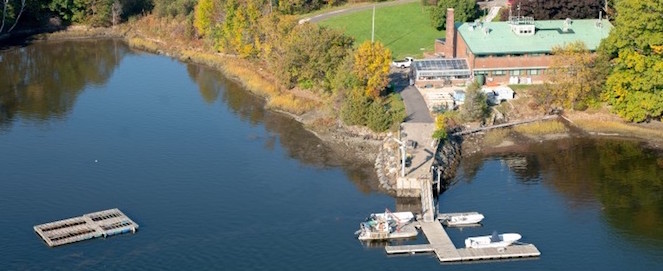
Jackson Estuarine Laboratory
Physiology of hemolymph, gut fluid, and hepatopancrease of the land crab Gecarcinus lateralis (fréminville) in various neuroendocrine states
Abstract
1. Speciemens of Gecarcinus lateralis were studied in varied neuroendocrine states: i.e. crabs with eyestalks in intermolt and at echysis, destalked crabs at ecdysis and destalked crabs, thoracic ganglionic mass (TGM)-implaneted, at ecdysis.
2. Protein in hemolymph is significantly decreased in destalked crabs at ecdysis. Implanted destalked crabs had a higher protein content than non-implanted.
3. Osmorlarity of hemolymph is lower in all animals at ecdysis than in intermolt. Distribution of fluids is abnormal in destalked crabs; it is partialy corrected implanting a TGM.
4. Hepatopancreatic water and lipid content are comparable in all crabs at ecdysis.
5. The significance of these results to the biology of the crab is discussed.
Publication Date
3-1974
Journal Title
Comparative Biochemistry and Physiology Part A: Physiology
Digital Object Identifier (DOI)
Document Type
Article
Rights
Copyright © 1975 Published by Elsevier Inc.
Recommended Citation
Mantel, L.H., D.E. Bliss, S.W. Sheehan and E.A. Martinez. 1975. Physiology of hemolymph, gut fluid, and hepatopancreas of the land crab Gecarcinus lateralis (Freminville) in various neuroendocrine states. Comparative Biochemistry and Physiology 51A:663-671
